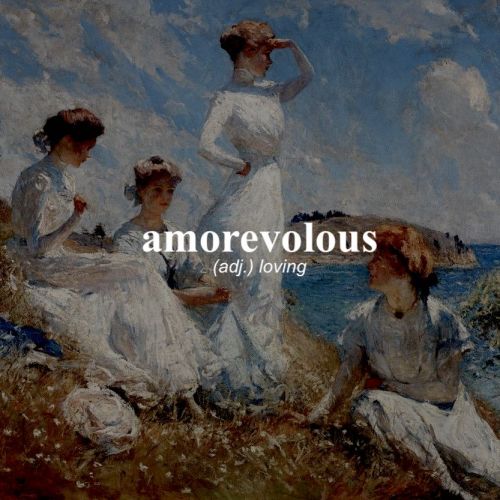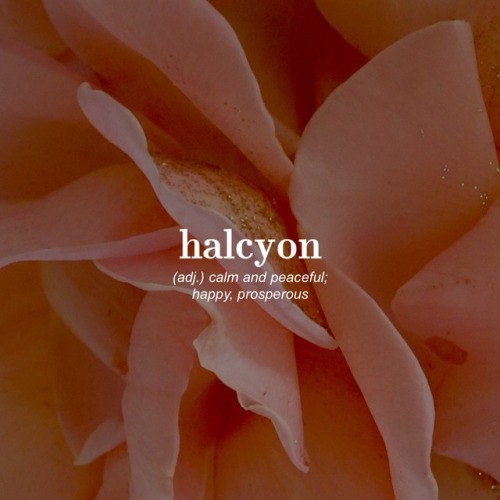#langblr
Hey guys, I’ve been loving hearing from you lately, so don’t be afraid to message me and talk about linguistics or etymology or just tell me your favorite word! Thanks so incredibly much for 3,000 beautiful followers!
Post link
Distinguishing between ‘das’ and 'dass’ is one of the hardest challenges when learning German, and it’s hard even for us native speakers! It’s especially difficult for learners whose native language is English in my opinion, because both usually simply mean 'that’. However, not exactly the same kind of 'that’. In this post I’ll try to show you how to distinguish these two by showing you what I usually do when having to choose between 'das’ and 'dass’.
'Das’
Article
“Das Haus ist gross” “Er geht, das Mädchen folgt ihm”
In these cases, 'das’ is used as an article, however, it can seem a bit tricky after a comma. But when you can match the 'das’ as an article to a noun, always write it with one s.
demonstrative pronoun
“Das ist gar nicht gut” “Sie sagte, das sei normal”
In these cases, 'das’ is a pronoun and the subject of a sentence, so 'das’ can replace a noun and acts on its own. You can always check whether it is a demonstrative pronoun by asking (let’s take the first sentence as an example) “wer/was ist gar nicht gut?” “DAS ist gar nicht gut”. This one is the hardest to spot for me actually but after a while (and after refreshing German pronouns) it gets a lot easier.
relative pronoun
“Das Haus, das einen grossen Garten hat” “Das Kind, das den Nachbaren gebissen hat”
Here 'das’ refers to an object/the subject in the previous sentence part, in the examples above to “Das Haus” and “Das Kind”. You can check that by substituting 'das’ by 'welches’ i.e. instead of “Das Kind, das den Nachbarn gebissen hat” “Das Kind, welches den Nachbarn gebissen hat”, if that works then you’re dealing with a relative pronoun which is very similar to the English version: “The child who/that has bitten the neighbour”
'Dass’
Conjunction
“Es geht nicht, dass er sie so behandelt” “Dass du mir nicht vertraust, verletzt mich”
'Dass’ is only used in one instance; to link different parts of sentences, so it’s similar to words like 'und’ and 'oder’ but unlike those to which link two main clauses, 'dass’ always links a main clause with an subordinate clause, so unlike 'das’ it does never depend on a noun. Unlike i.e. a relative pronoun, 'dass’ can be shifted within the sentence as a whole, although it always stands at the beginning of the subordinate clause.
Whenever I need to choose between 'das’ and 'dass’ in an essay or such, I try to first go through all the possibilities including a noun (article, relative pronoun, demonstrative pronoun) and if none of these can be applied, I am only left with 'dass’.
And tada: that’s how I try to not get confused with 'das’ and 'dass’, however, I am sure that there are other methods as well which are super helpful :^)
Have a nice weekend, everyone!
German Politics Vocabulary
Nomen/nouns:
die Politik - politics
die Macht - power
der Politiker (die Politiker) - (male) politician
die Politikerin (die Politikerinnen) - (female) politician
der Staat (die Staaten) - state
der Präsident (die Präsidenten) - (male) president
die Präsidentin (die Präsidentinnen) - (female) president
der Staatschef (die Staatschefs) - (male) head of state
die Staatschefin(nen) - (female) head of state
die Präsidentschaftswahl(en) - the presidential elections
der Kandidat (die Kandidaten) - (male) candidate
die Kandidatin(nen)- (female) candidate
die Demokratie(en) - democracy
die Republik(en) - republic
die Diktatur(en) - dicatorship
die Militärdiktatur(en) - military dictatorship
die Monarchie(n) - monarchy
die konstitutionelle(n) Monarchie(n) - constitutional monarchy
die Oligarchie(n) - oligarchy
die Wahl(en) - election
der Wahlbetrug (die Wahlbetrüge) - election fraud
die Wahlstimme(n) - vote
die Abstimmung(en) - referendum
der Wahlsieg (die Wahlsiege) - election victory
die Wahlniederlage(n) - election defeat
die Wahlnacht (die Wahlnächte) - election night
das Parlament (die Parlamente) - parliament
der Parlamentarier (die Parlamentarier) - (male) member of the parliament
die Parlamentarierin (die Parlamentarierinnen) - (female) member of the parliament
die Mehrheit(en) - majority
die Minderheit(en) - minority
die Partei(en) - parties
die Demokraten (pl.) - democrats
die Republikaner (pl.) - republicans
die Liberalen (pl.) - liberals
die Konservativen (pl.) - conservatives
die Grünen (pl.) - green party
Verben/verbs:
wählen/seine Stimme abgeben - to vote
jemanden (akkusative) wählen - to vote for somebody
gewinnen - to win/to succeed
die Mehrheit gewinnen - to win the majority
verlieren - to lose
die Mehreit verlieren - to lose the majority
Adjektive/adjectives:
politisch - political
mächtig - powerful
kompetent - capable
demokratisch - democratic
links - left
rechts - right
liberal - liberal
konservativ - conservative
Nützliche Sätze/useful phrases:
“Ich habe den falschen Kandidat gewählt!” - “I’ve voted for the wrong candidate!”
“Die Präsidentin ist sehr kompetent.” - “The president is very capable.”
“Der Staatschef hat am meisten Macht.” - “The head of state has the most power.”
“Die Wahlen waren schon lange fällig.” - “The elections were long overdue.”
“Die Demokraten und Republikaner teilen nicht die selben Ansichten.” - “The democrats and republicans don’t share the same values.”
“Viele junge Leute nehmen nicht teil an Abstimmungen.” - “Many young people don’t vote in referendums.”
(I wanted do a vocab list on politics for quite a while now, I hope you like it! Again, recommendations on what to improve are very welcome, I hope you have a nice Sunday!)
French Travel Vocabulary
noms/nouns:
le voyage - journey
le bagage - luggage/baggage
la valise - suitcase
le sac à main - handbag
le sac à dos - backpack
le carrousel - baggage claim
le passeport - passport
le visa - visa
la carte d'identité - ID card
les documents de voyage (m) - travel documents
l'avion (m) - airplane
l'aéroport (m) - airport
le vol - flight
la porte - gate
l'escale (f) - layover
l'arrivée (f) - arrival
le hall d'arrivée - arrival’s hall
le départ - departure
la salle de départ - departure lounge
le guichet - ticket desk
le train - train
la gare - train station
la gare centrale - main train station
le quai - platform
le billet - (rail road) ticket
le guichet - ticket counter
le bac/le ferry - ferry
le bateau - boat
le port - port
la croisière - cruise
l'hôtel (m) - hotel
l'auberge (f) - hostel
la nuit(ée) - overnight stay
la réservation - booking/reservation
le changement de réservation - transfer
verbes/verbs:
voyager - to travel
aller à l'étranger - to go abroad
changer de l'argent - exchange currency
voler - to fly
dédouaner qc. - to pay duty on something
prendre le train/aller en train - to take the train
rater le train - to miss the train
changer de train - to transfer to another train
arriver - to arrive
partir - to depart
conduire - to drive
attendre - to wait
passer la nuit - to stay overnight
coucher à l'hôtel - to spend the night at a hotel
réserver - to place a reservation/to book
découvrir - to discover
se perdre - to get lost
adjectifs/adjectives:
en retard - late
annulé(e) - cancelled
réservé(e) - reserved
quelques phrases qui pourraient aider/useful phrases:
“Où se trouve…?/Où est…?” - “"Where’s..?”
“J'ai perdu mon passeport.” - “I have lost my passport”
“Sur quel quai part ce train?” - “On which platform does this train depart?”
“Rien à déclarer” - “Nothing to declare”
“Combien coûte le/un billet?” - “How much does a ticket cost?”
“À quelle heure arrive le prochain bateau?” - “When will the next boat arrive?”
bon voyage! - have a nice journey!
(This is my second vocab list, aka the German one just translated to French, again if you have any recommendations to improve it, please tell me! And if you want me to do any vocabulary lists on certain topics in either German, French, and maybe Italian, then don’t hesistate to ask. I hope you all have a nice weekend!)
Thank you for all your corrections so far!
Nomen/nouns (plurals in brackets):
das Gepäck - baggage
der Koffer (die Koffer) - suitcase
die Handtasche (die Handtaschen) - handbag
der Rucksack (die Rucksäcke) - backpack
die Gepäckrückgabe(n) - baggage claim
der (Reise)Pass (die (Reise)Pässe) - passport
das Visum (die Visa) - visa
die Identitätskarte(n) (ID)/ der Personalausweis (die Personalausweise)- ID card
die Reiseunterlagen - travel documents
das Flugzeug (die Flugzeuge) - airplane
der Flughafen (die Flughäfen) - airport
der Flug (die Flüge) - flight
das Gate (die Gates) - gate
die Ankunftshalle(n) - arivalls hall
die Ankunft (die Ankünfte) - arrival
der Abflug (die Abflüge) - departure
der Ticketschalter (die Ticketschalter) - ticket desk
der Zug (die Züge) - train
der Bahnhof (die Bahnhöfe) - train station
der Hauptbahnhof (die Hauptbahnhöfe) - main train station
der Bahnsteig (die Bahnsteige) - platform
die Fahrkarte(n)- (railroad) ticket
der Ticketschalter (die Ticketschalter) - ticket counter
die Fähre (die Fähren) - ferry
das Boot (die Boote) - boat
der Hafen (die Häfen) - port
die Kreuzfahrt (die Kreuzfahrten) - cruise
das Hotel (die Hotels) - hotel
die Herberge (die Herbergen) - hostel
die Übernachtung (die Übernachtungen) - overnight stay
die Buchung(en)- booking
die Umbuchung(en) - transfer
die Reservation(en) - reservation
Verben/verbs:
reisen - to travel
ins Ausland gehen - to go abroad
Geld wechseln - to exchange currency
fliegen - to fly
verzollen - to pay duty on
den Zug nehmen - to take the train
den Zug verpassen - to miss the train
den Zug wechseln/umsteigen - to transfer to another train
ankommen - to arrive
abfahren - to depart
fahren - to drive
warten - to wait
übernachten - to stay overnight
buchen - to book
reservieren - to place a reservation
erkunden - to discover
sich verlaufen - to get lost
Adjektive/adjectives:
verspätet - delayed
gestrichen - cancelled
verzollbar - customable
gebucht - booked
reserviert - reserved
Hilfreiche Sätze/useful sentences:
“Wo ist/liegt …?” - “Where’s …?”
“Ich habe meinen Pass verloren.” - “I’ve lost my passport”
“Auf welchem Bahnsteig fährt dieser Zug (ab)?” - “On which platform does this train depart?”
“Nichts zu verzollen” - “Nothing to declare”
“Wie viel kostet eine Fahrkarte?” - “How much does a ticket cost?”
“Wo kann ich eine Fahrkarte kaufen?” - “Where can I buy a ticket?”
“Wann kommt das nächste Boot?” - “When will the next boat arrive?”
(Ay, this is my first vocab sheet, and I’d love to get some recommendations on what to do better. However, I hope you enjoy it and have a nice day!)
(Also Germany voted yes on same-sex marriage, it was finally time and I am so happy!)

send asks while i write down my german notes? <3
open for hq


had my first german class yesterday and i’m so excited!!
open for hq
welcome to the first part of this post series on french adverbs, which focuses on adverb formation!
note - what is an adverb? an adverb is a word that modifies a verb, the same way adjectives modify nouns!
e.g. she studied quickly.in this case, quickly modifies the verb studied.
i. regular formation
this works in most cases, but of course, with french, there are always exceptions
take the feminine form of a adjective and add -ment
- parfait (perfect, masc) → parfaite (perfect, fem) → parfaitement(perfectly.)
- malheureux (unfortunate, masc) → malheureuse (unfortunate, fem) → malheureusement(unfortunately)
- réel (real, masc) → réelle (real, fem) → réellement(really)
ii. adjectives that end with a vowel
add an -ment
- facile (easy) → facilement(easily)
- grave(serious) →gravement(seriously)
iii. adjectives that end in -ant or -ent
replace the -ant with an -amment or the -ent with -emment to form an adverb
- évident (obvious) → évidemment(obviously)
- brillant (brillant) → brillamment(brilliantly)
iv. -ément exception
for some adjectives, you form an adverb by taking the masculine form and adding an -ément to the end.
if the adjective ends with an e in the masculine form, remove then e and then add the -ément
- aveugle(blind) →aveuglément(blindly)
- commun (common) → communément(commonly)
- confus (indistinct) → confusément(indistinctly/confusedly)
- énorme (enormous) → énormément(enormously/tremendously)
- intense (intense) → intensément(intensely)
- obscur (obscure) → obscurément(mysteriously)
- précis (precise) → précisément(precisely)
- profond (profound) → profondément(profoundly)
- uniforme (uniform) → uniformément(uniformly)
v. irregular formation
just memorize them, there really aren’t rules
- bon(good) →bien(good)
- mauvais (bad) → mal(bad)
- pire(worse) →pis(worse)
- meilleur(better) →mieux(better)
- bref (brief) → brièvement(briefly)
- gentil(gentle) → gentiment (gently)
- gai(happy) →gaîment (happily)
vi. commonly used adverbs that don’t end in -ment
- ainsi (in this way/thus)
- debout(up/awake/upright)
- exprès (on purpose)
- vite(quickly)
- volontiers(gladly)
current situation: snuggled under a blanket on the sofa, writing out notes from today’s japanese class with colourful pens, japanese radio playing, a purring cat beside me and my favourite drink within reach.
Language Learning Log 2022
Week 20 (16/05 - 22/05)
Banner photo: My dad came to visit this week, and he brought freshly-laid eggs from his chickens. I used them to make omelettes, and my God they were delicious!
Norwegian
- 1x journal entry
- 2xHistoriske kjendiserpodcasts
- 1xNorskpoddenpodcast
- 2xEkkopodcasts
- 1x italki lesson (60m)
- 1x article
Japanese
- Duolingo
- 1x italki lesson (45m)
- 10x Nihongo con Teppei podcasts
- Attempted to read NHK Easy News
- Reviewed vocabulary

It’s been a busy week, but I’m glad I managed to get a little studying in (even if the majority of it was podcasts and Duolingo - it’s still something!). My Japanese teacher told me about NHK Easy News, so I decided to check it out. And I understood one of the titles! That was about as far as my comprehension went There were a few titles where I understood all the words, but couldn’t figure out what they all meant together, so I used google translate to help (along with maybe a couple of sentences). I think it’ll be a long time before I can read a full article!
Speaking of Japanese though… this week I’m increasing my lessons from 1x45mins and 1x30mins to 2x45mins and 1x30mins. I’m really excited! At the moment I’m mostly going over very basic grammar and practising speaking/learning extra vocabulary in my 45-minute lessons. Which is nice and absolutely necessary (and I’m getting really comfortable with the basics), but I’m starting to get a bit impatient So I’m hoping that by taking 2 45-minute sessions a week I’ll be able to get through the basics faster and get on to learning something new/more useful.
I discovered a new Norwegian podcast this week - Historiske kjendiser. It’s about historical figures from both Norway and other areas of the world, and it’s pretty interesting! This week I learned about Vidkun Quisling (who was an arsehole) and Roald Amundsen (also a bit of a dick with an ego by the sounds of it). The presenters speak vestlandsk/sørvestlandsk dialects, but I’m not having too much trouble understanding.
I also got my Bergenstest results! I’m SO happy I managed to get C1 overall! Of course, it’s a little frustrating to only get B2 on the written production/interview report sections, but I think those really suffered for (a) the exam conditions and (b) my lack of sleep the night before. My tutor always gave me C1 on those sections, but on the day I second-guessed myself in the writing section and played it safe a lot more than I would’ve done normally. In the interview section, my concentration wavered more than it might normally have done, and I honest to God had no idea what the guy said at the end of the interview, so I kinda had to take a stab in the dark.
I indulged in a little Spanish this week… ahh, it’s such a lovely language! Kinda wish I had time to learn it But given I barely have time to study Norwegian and Japanese, I’ll refrain from trying to add Spanish in too (although I did a quick search on italki and there are Norwegian-speaking Spanish teachers… ohh the temptation!). But I will come back to it one day. Why are there so many languages in the world and so little time to learn them all?
Post link












